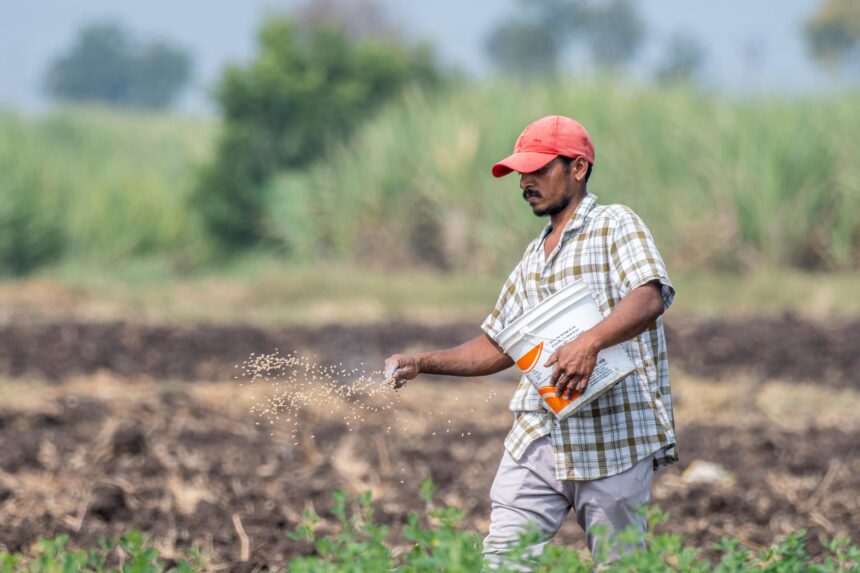Balancing Agricultural Progress with Industrial Expansion
Uttar Pradesh, India’s largest agrarian state, has initiated significant land reforms to promote agricultural growth and industrialization. These reforms, though aimed at empowering farmers and boosting the rural economy, have sparked debates about their effectiveness and equity. Are they genuinely uplifting small-scale farmers, or do they cater primarily to large corporations?
Key Metrics
- Natural Farming Adoption: Over 4.5 lakh hectares of land in Uttar Pradesh are now under natural farming, reducing farmers’ dependence on chemical fertilizers and lowering input costs. (Uttar Pradesh Agriculture Department)
- Agroforestry Carbon Finance Project: Estimated to generate 4.5 million carbon credits, potentially bringing ₹230 crore in additional income for participating farmers. (Uttar Pradesh Government Initiative, 2023)
- Industrial Land Acquisition: ₹6,000 crore has been earmarked for land acquisition to facilitate industrial projects under the Industrial Investment and Employment Promotion Policy, 2022. (UP State Investment Promotion Policy)
- Fertilizer Subsidies via Cooperatives: Nearly 12 million farmers benefited from subsidized fertilizers and seeds distributed through cooperatives in 2023. (Uttar Pradesh Cooperative Federation)
Land Reforms and Their Impacts
Empowering Farmers through Sustainable Practices
The state has actively promoted chemical-free natural farming under the Natural Farming Programme. Farmers adopting these practices report improved soil health and reduced costs, ensuring long-term productivity. Additionally, the Agroforestry Carbon Finance Project offers opportunities for farmers to earn supplementary income by linking agricultural practices with global carbon credit markets.
Support for Small Farmers
Through the Uttar Pradesh Cooperative Federation, the state provides affordable fertilizers, seeds, and farming equipment, ensuring that small-scale farmers can access essential inputs without the burden of intermediaries. In 2023, cooperatives facilitated the distribution of over 2.5 lakh metric tonnes of fertilizers across the state.
Industrialization and Land Use
The government’s push for industrial growth has led to significant land acquisition initiatives, with a focus on creating employment opportunities and boosting the state’s GDP. Under the Industrial Investment and Employment Promotion Policy, the state has approved land-use changes for large-scale projects, including logistics hubs and manufacturing units. However, this has raised concerns about the displacement of farmers and the conversion of fertile agricultural land for industrial purposes.
Challenges and Concerns
- Displacement and Compensation:
While industrial land acquisition promises economic benefits, farmers have raised concerns about inadequate compensation and the loss of livelihoods in rural areas. - Impact on Food Security:
The conversion of agricultural land into industrial zones could potentially impact food production, affecting both local and national food security goals. - Equitable Access to Reforms:
Critics argue that the benefits of reforms often favor large landowners and corporations, leaving small-scale farmers with limited access to government schemes.
Moving Forward
- Strengthening Compensation Mechanisms:
Ensuring timely and fair compensation for displaced farmers is essential to maintaining trust and minimizing economic disruptions. - Balancing Agriculture and Industry:
Policies must prioritize the sustainable use of fertile land while identifying alternative spaces for industrial growth, such as degraded or barren lands. - Enhanced Monitoring and Transparency:
Regular audits and public consultations can improve the effectiveness of land reforms and ensure equitable benefits for all stakeholders.
Conclusion
Uttar Pradesh’s land reforms represent a dual-edged sword, aiming to enhance both agricultural sustainability and industrial development. While initiatives like natural farming and agroforestry empower farmers, the state’s aggressive push for industrialization raises valid concerns about equity and environmental impact.
Striking a balance between agriculture and industry will be key to ensuring that these reforms truly benefit farmers while supporting the state’s broader economic ambitions. With thoughtful implementation and transparency, Uttar Pradesh can pave the way for inclusive and sustainable development.


Leave a Reply